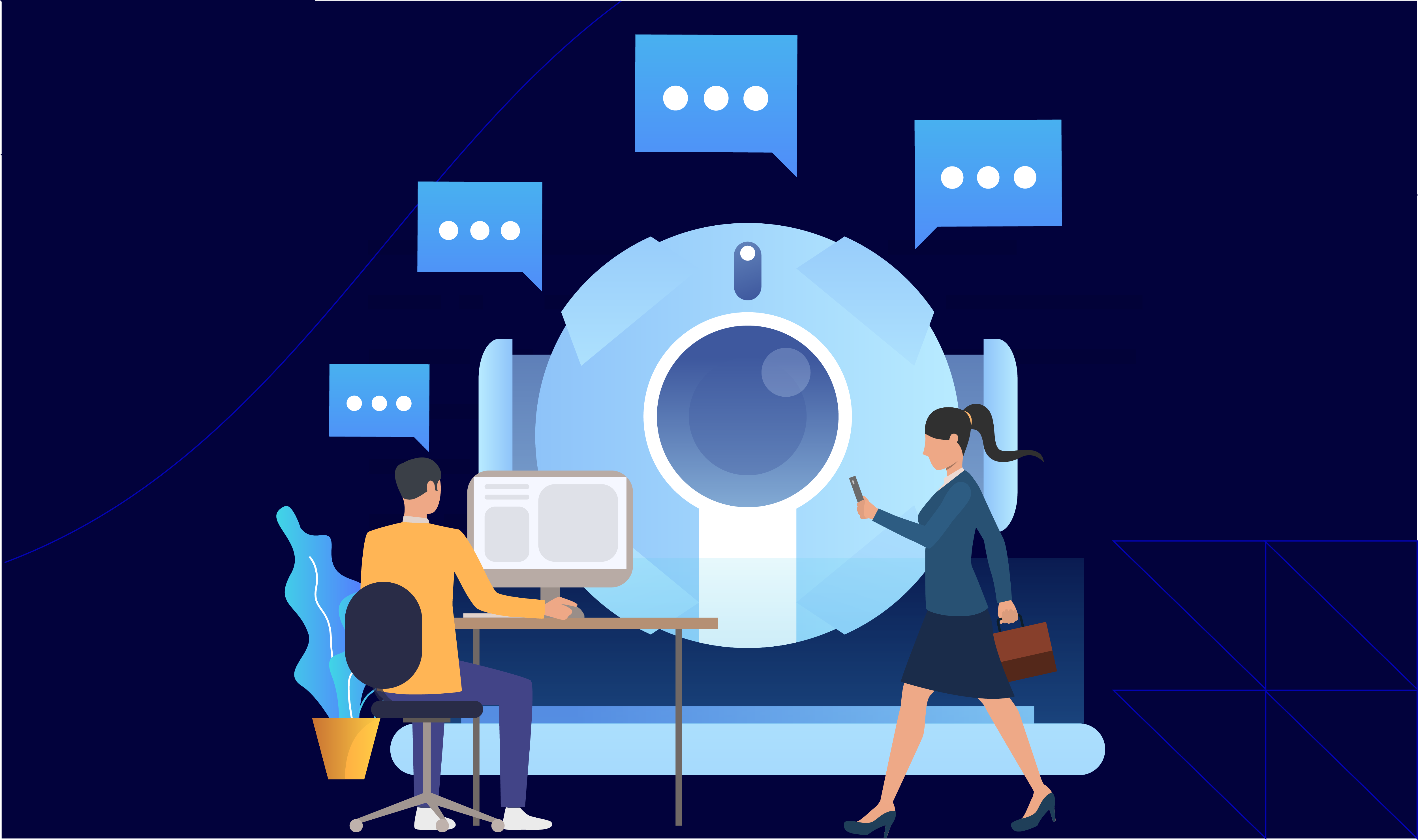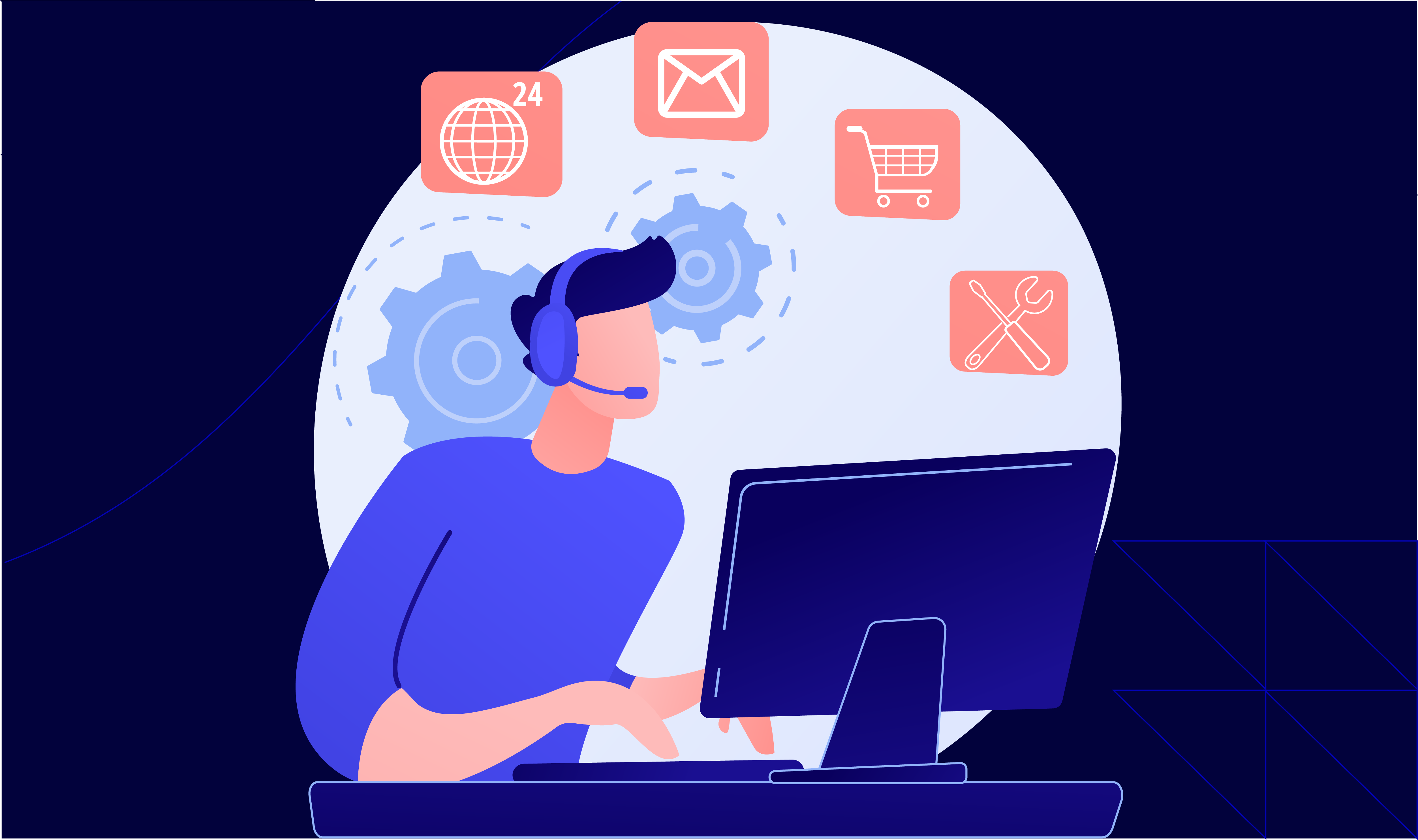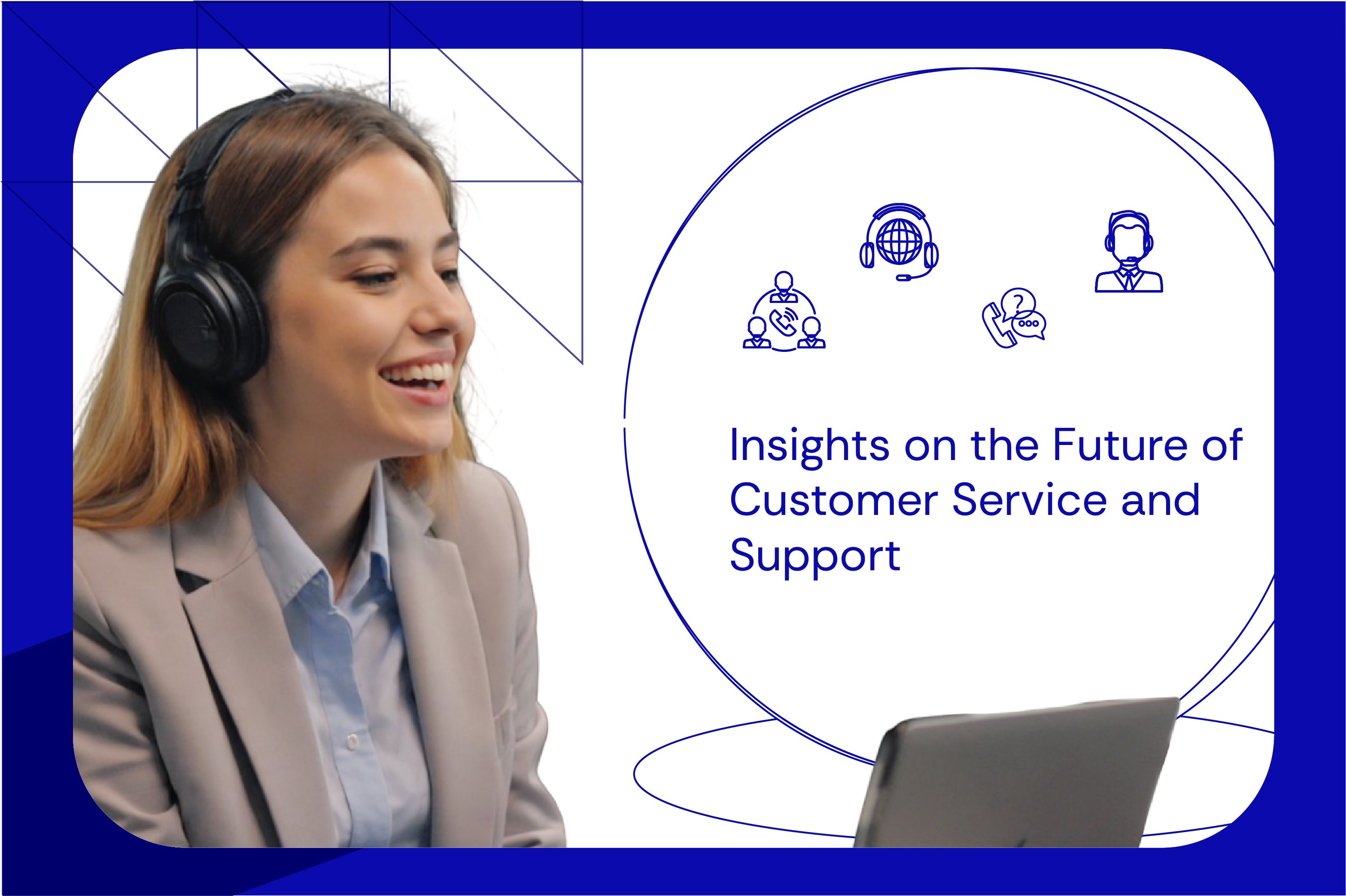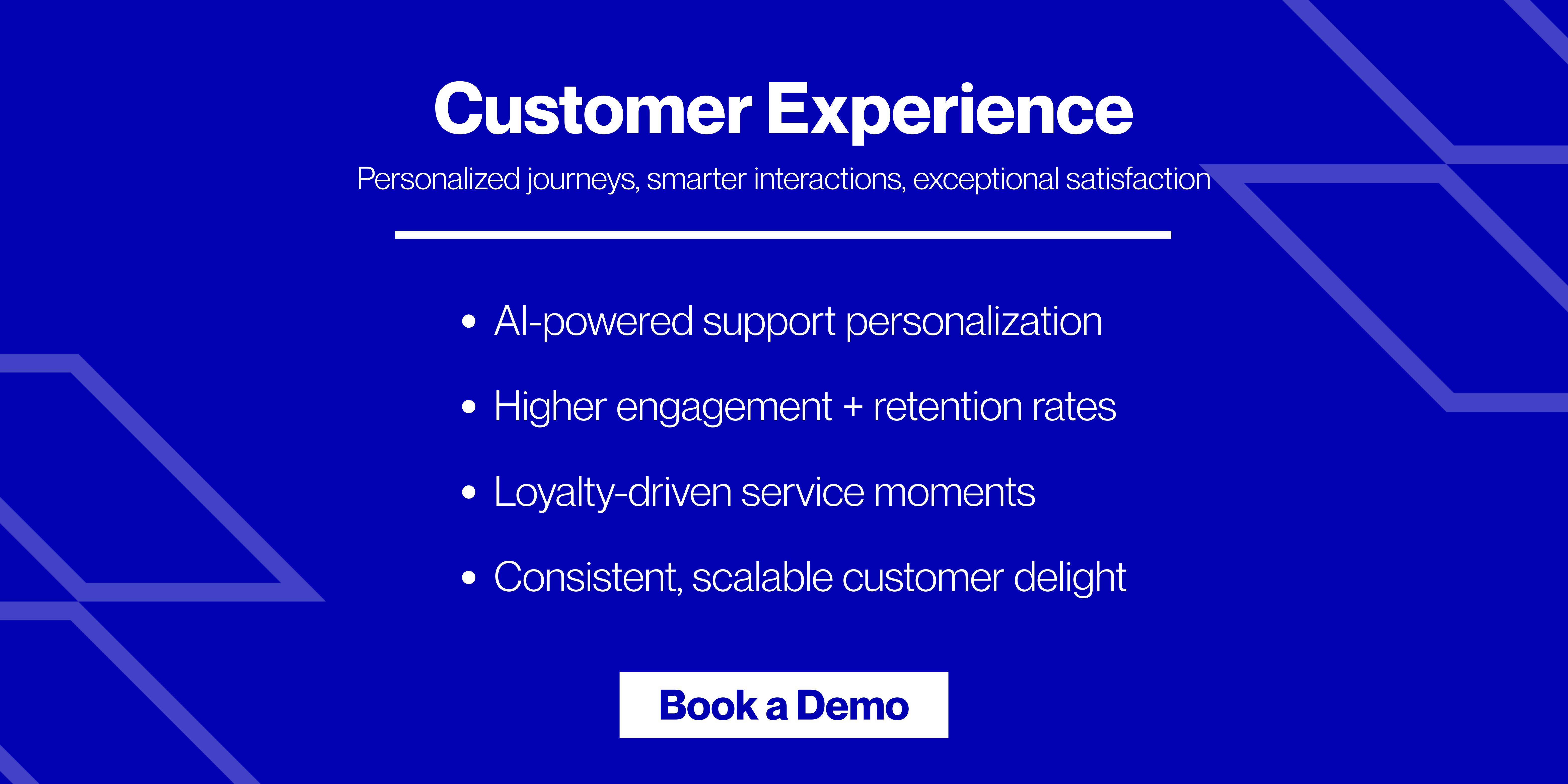Key Takeaways
- Customer service is evolving from reactive to proactive, with personalization, data, and speed at the core of modern support.
- AI is enhancing—not replacing—human agents by handling repetitive tasks and enabling faster, smarter support.
- Omnichannel is the new standard—customers expect seamless service across phone, chat, email, and social media.
- The human touch still matters most—even in a tech-driven future, empathy and emotional intelligence set brands apart.
- For consumer brands and D2C companies in competitive US, UK & Australian markets, the future of service will determine long-term loyalty and revenue growth.
What Is the Future of Customer Service?

Customer service is no longer just about solving problems after they happen. The future is all about being one step ahead. That means anticipating customer needs, using technology to respond instantly, and still managing to make every interaction feel personal and thoughtful.
So, what does that look like in real life?
- 24/7 availability isn’t a nice-to-have anymore, it’s expected. Research showed that 92% of customers believe that they must receive quick responses to customer service queries.
- Omnichannel is everything. Customers might DM you on Instagram, email you the next day, and expect your team to connect the dots instantly.
- Personalization is critical. 57% of customers studied by Salesforce said that they would be ready to even share their personal data if it meant that they would receive personalized offers.
That’s why the future of the customer service industry is being shaped by tools like AI, but rooted in human connection. We’re talking about chatbots that can escalate to humans seamlessly, support agents who are empowered to make things right, and brands that treat every interaction like it matters. The future of customer service is proactive, intelligent, and deeply human. For CX leaders, this means rethinking systems, training and tools, to create future-ready experiences that retain customers. Let’s dive right into what that future looks like!
Key Trends Shaping the Future of Customer Service Industry
Between new tech, rising expectations, and a world that’s more connected than ever, the way we serve customers is shifting fast. Here’s what’s shaping the future of customer service—and what it means for your business.
AI Isn’t Replacing Support Teams, It’s Empowering Them
Think of AI like the Robin to your team’s Batman. It’s the behind-the-scenes sidekick that takes care of all the repetitive, time-consuming stuff—like routing tickets to the right person, suggesting answers to common questions, analyzing customer sentiment, and even flagging frustrated customers before things escalate. Meanwhile, your support agents get to focus on what humans do best.
Let’s say a customer reaches out three times in one week—AI can pull those interactions together, summarize them, and prep your agent with all the context they need. That means instead of saying, “Can you explain what happened again?” your agent starts with, “I saw you’ve been having some trouble with your last order—let’s get this fixed for you.” According to McKinsey, companies that combine AI with human agents see up to a 20% increase in efficiency while improving CSAT.
Personalization Goes from Nice-to-Have to Non-Negotiable
These days, personalization isn’t some extra flourish—it’s the expectation. Customers want support that feels human, tailored, and actually aware of who they are. Imagine the difference between this:
“Hi there, how can I help you?”
…versus this:
“Hey Jason! I saw your last order had a delayed delivery—totally understand how frustrating that can be. Want me to check on your most recent one?”
This kind of personalized service isn’t magic—it’s just smart use of data. Your CRM, helpdesk, and customer history tools are packed with info that can help your agents connect the dots and treat every customer uniquely.
For D2C brands, personalization directly impacts repeat purchases and customer lifetime value.
Omnichannel Support Is the Standard
Customers think in terms of convenience. One minute they’re DMing you on Instagram while standing in line for coffee, and the next they’re shooting over a follow-up via email during a Zoom meeting. And they expect you to keep up.
Omnichannel customer experiences aren’t about being everywhere, they’re about showing up seamlessly no matter where the conversation is happening. Businesses with strong omnichannel customer experience strategies retain 89% of their customers, while those with weaker strategies only manage to retain 33%. Most leaders in customer experience are investing in support platforms that centralize all channels into a single view. That’s where efficiency and customer happiness meet.
For CX executives, the ROI of omnichannel is clear: unified systems reduce churn and increase customer loyalty.
Predictive Support Will Be a Game-Changer
Most customer service today is still reactive. Someone has a problem, they reach out, and your team responds. But with data analytics, AI, and behavioral tracking, businesses can now spot friction points before customers even notice. Maybe a customer’s subscription is about to expire, or usage data shows they haven’t touched a key feature. Maybe your system detects a slowdown that might lead to a service outage. Predictive support means you make the first move before the customer even notices something’s off. What it means is that you’re not just fixing problems—you’re preventing them. You’re showing customers that you’re paying attention and that you care.
For example, subscription-based brands can predict churn risk when usage declines and proactively reach out with offers or education.
The Human Touch Still Wins
Studies show that 55% of customers actually prefer speaking to a human customer service agent. No matter how slick your tech stack is, nothing beats feeling like someone actually cares. Sure, AI is great for routing tickets, answering FAQs, and saving time. But when a customer is upset, confused, or just really needs help? That’s when a human touch is needed most. A warm voice as service. A thoughtful reply. An agent who says, “Hey, I get why this is frustrating. Let me fix it.” That’s the kind of moment customers remember.
The future is not AI vs. humans, it’s AI with humans.
How to Prepare for the Future of Customer Service

The future isn’t five years away. It’s already knocking. And if you want to meet it with confidence, the time to evolve your service game is right now. Here’s how to start future-proofing, without overwhelming your team:
Invest in AI + Humans
Let’s get one thing straight: AI isn’t here to steal jobs—it’s here to make your support team unstoppable. When you blend AI efficiency with human empathy, everyone wins. Your customers get faster, smarter service, and your agents avoid burnout and get to shine. Here’s how to make AI and humans your ultimate power duo:
- Automate the low-effort stuff: Set up AI to handle repetitive tasks like:
- Tagging and routing tickets based on keywords
- Answering common FAQs
- Sending status updates or order confirmations
- Use AI to support (not replace) your team: Integrate AI tools that work with your agents, not around them. Look for solutions that:
- Suggest real-time replies during chats
- Surface helpful resources or customer history
- Detect sentiment and flag frustrated users
- Train your team on when to hand off: Make it crystal clear when AI should escalate to a human. Set rules so the handoff is smooth and fast.
- Blend AI with empathy: Don’t let automation sound robotic. Even your chatbot tone should feel human, friendly, and helpful. Think, “Hi there! Let me check on that for you” vs. “Your request is being processed.”
Best practice for scaling brands is to start small with one workflow, measure the impact and then expand.
Create a Seamless Experience
If you want to keep customers happy and loyal, start by making sure they never have to repeat themselves. Here’s how to deliver seamless, connected support across every channel:
- Integrate your support tools: Connect your CRM, helpdesk, chat, and outsourced email support platforms so agents always have the full picture. Look for systems that offer:
- Unified customer profiles
- Real-time sync across channels
- Shared conversation histories
- Centralize customer data: Make sure all interactions—past tickets, purchases, preferences—are in one place.
- Use conversation tracking tools: Ensure ongoing conversations carry over across platforms. For example, if a customer messages on Instagram, then emails later, your team should see the full thread.
- Train agents on context-switching: Teach your team how to jump into conversations midstream by scanning past interactions and reading between the lines.
VPs and Directors leading CX transformation should prioritize unified customer profiles and sync across platforms.
Upskill Your Team
AI can do a lot these days. But you know what it can’t do? Genuinely care. That’s why soft skills are still your team’s biggest superpower. While the bots handle the quick answers and ticket routing, it’s your people who turn tough conversations into trust-building moments. And if you want to future-proof your support, investing in those human skills is a must. Start with the basics:
- Empathy
- Active listening
- Clear communication
- Proactive thinking
For growing consumer brands, a trained and empowered support team is a competitive differentiator.
Prioritize Feedback and Actually Act on It
Your support tickets, CSAT scores, NPS responses, and chat transcripts are a direct line into what your customers are thinking, feeling, and struggling with. Use that insight to:
- Spot friction points – Are customers always getting stuck during onboarding? Is there a confusing step in your process?
- Improve your knowledge base – If multiple people are asking the same question, that’s your cue to turn it into an FAQ or a how-to video.
- Refine internal processes – Maybe it’s your escalation flow. Maybe it’s how refunds are handled. If feedback reveals a snag, fix it.
Forward-thinking CX leaders use this feedback to refine processes and build resources that scale.
Don’t Just Support Customers, Set Them Up for Success

The future of customer service is about more than just being available. It’s about being predictive, personal, and proactive. It’s about meeting customers where they are, understanding their needs before they even say a word, and delivering service that feels effortless and human, even when it’s powered by the latest tech.
The brands that will win are those that combine AI-powered efficiency with human care and design to support operations as a driver of loyalty.
Yes, automation is game-changing. Yes, AI is a massive force multiplier. But the companies that will really win are the ones that combine all that with genuine care, empowered teams, and a service mindset that’s focused on the long game.
Need Help Getting Future-Ready?
At Atidiv, we help growing businesses with customer experience solutions built for what’s next. We work with VPs, Directors and CX leaders across the US, UK & Australia of consumer brands and D2C sectors, to design scalable,omnichannel customer experiences, future-ready support systems.
Our team can help you:
- Scale support while cutting costs
- Integrate AI without losing the human touch
- Build omnichannel experiences that customers remember
Partner with Atidiv and scale smarter into the future of customer service.
FAQs On the Future Of Customer Service
1. What is the future of customer service all about?
It’s about delivering faster, smarter, and more personalized experiences—using tech like AI and automation while keeping a human touch.
2. Will AI replace human customer service agents?
Not at all! AI is here to support—not replace—agents by handling repetitive tasks so your team can focus on meaningful, complex interactions.
3. Why does omnichannel support matter so much now?
Customers bounce between platforms and expect you to keep up. Omnichannel ensures they get seamless support no matter how they reach out.
4. What are some signs a company is ready for next-gen support?
If you’re thinking about AI tools, proactive outreach, or unifying customer data across systems, you’re already on the right track.
5. How can businesses start preparing for the future of customer service?
Start by training your team, embracing automation, and listening closely to customer feedback. Small changes now lead to big wins later.

